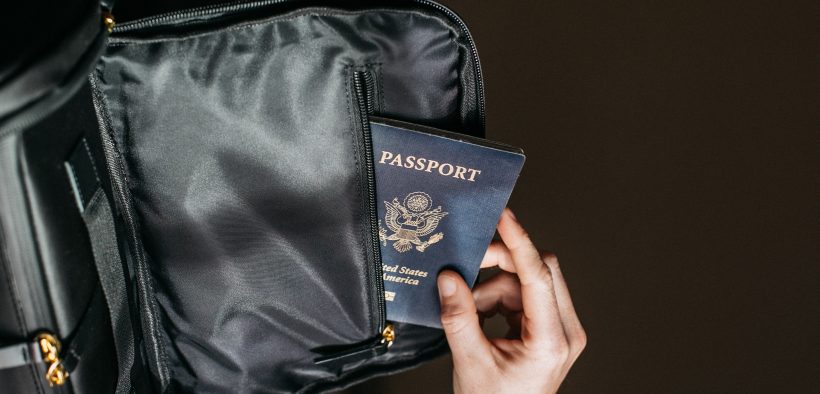Short-Term Mission Trips Won’t Return to Normal in 2021

In normal years, between one and two million Americans travel—either within the U.S. or internationally—to participate in short term mission trips. But 2018 and 2020 were far from normal, and 2021 is shaping up as an off year, too.

Ashley Creason, a program manager with the nonprofit organization ShortTermMissions.com, told MinistryWatch she’s been seeing fewer organizations offering international journeys, and fewer churches signing up groups for travel.
“Some organizations have completely shut down or dissolved, some shifted their focus to local ministry, some offered new or more U.S.-based trips, and others have offered virtual trips/pre-field training, or other activities,” said Creason.
Creason said a recent survey showed that only 24% of partnering organizations said “we are back to what we were before” COVID. Other survey respondents said they were adjusting to recent challenges.
“Seeing more individuals wanting to go and serve rather than teams,” said one. Another said, “There has been an increase in individuals and families going on trips. Churches and institutions are more risk averse. Most chose to not go in 2020 or 2021.”
Access to MinistryWatch content is free. However, we hope you will support our work with your prayers and financial gifts. To make a donation, click here.
Bryan Bishop, who works in the press office of Youth With A Mission in Colorado Springs, said inquiries about Discipleship Training Schools offered by independent YWAM ministries around the world have increased this year after a downturn last year.
“We are seeing a gradual increase in the use of ywam.org to search for opportunities,” Bishop said.
Abnormal years are the new normal
A series of abnormal years have hammered short-term trips, which were a mainstay of many youth groups.
In 2018, political upheavals and environmental emergencies wreaked havoc on hundreds of travelers and forced hundreds more to cancel trips.
In July 2018, Haiti erupted in riots and demonstrations, forcing hundreds of short-term missionaries to hunker down and pray for safety as violence flared, cell phone networks failed, and return flights to the U.S. were canceled.
Nicaragua was seized by violent and deadly riots before the summer mission season started, forcing the cancellation of more than a hundred short-term trips. And Minneapolis-based Praying Pelican Missions also dealt with a deadly volcano in Guatemala and hurricane threats in Puerto Rico, forcing it to cancel some trips and divert others to safer countries.
Participation in trips bounced back in 2019 only to suffer major setbacks as COVID-19 spread across the globe in 2020.
ShortTermMissions.com, a nonprofit founded in 2000, works as a connecting point between groups offering Christ-centered trips that include evangelism trips and believers wanting to travel and serve.
In 2019, 84 organizations worked with ShortTermMissions.com to find interested travelers. In 2020, that number declined to 68. So far this year, only 61 groups have advertised trips.
The number of trips offered has also declined, from 1,550 in 2019, to 1,300 in 2020, to 745 so far this year.
Inquiries sent by interested pilgrims to organizations sponsoring trips have plummeted, from 8,000 in 2019, to 3,600 in 2020, and only 1,660 so far through May.
Creason says one survey respondent said, “We added 2 domestic trips in 2020, both of which sold out. We decided to add a few more for 2021 but are having a very hard time filling them. We moved all of our International travel for 2021 to the 4th quarter, and those are filling very well.”
Questioning trips’ impact
Some pastors and youth workers are fine to see less emphasis on short-term mission trips, which have come under increasing fire over the years.
Robert Priest, professor of mission and intercultural studies at Trinity Evangelical Divinity School, says such trips are more about sightseeing than service. “The shift to short-term missions is significant,” he writes. “It may be the first mission movement in church history that is based largely on the needs of the missionary.”
In 2006, Andy Crouch interviewed leaders of Christian churches around the world for Leadership Journal and the short term mission research project Round Trip.
Many of the leaders brought up mission trips. One leader in Honduras talked about a teen wearing a “Bringing Jesus to Honduras” T-shirt, asking, “Do Americans think that Jesus isn’t in Honduras until they get here?” Another pastor from Kenya told Crouch, “You know, after you leave we repaint the walls that you have painted.”
Crouch suggested that we think of short-term trips as a contemporary form of the ancient Christian practice of pilgrimage. “A pilgrim goes on a journey to meet God in a faraway place, hoping to return a different person from the one who left,” he said.
David Livermore, a Christian author and speaker focusing on cultural intelligence, agrees. He has written about short term missions (“Serving with Eyes Wide Open: Doing Short-term Missions with Cultural Intelligence”). His latest book is “The Curious Traveler: See The World. Change Your Life.”
Livermore says mission trips can do more than provide a brief diversion and should instead inspire a hunger to learn more about people, customs, and cultures. He says if Americans aren’t even trying to become fluent in the language of the people among whom they are serving, they probably shouldn’t call themselves missionaries.
Christians who study mission trips say a model project is the long-running partnership between Chapel Hill Bible Church in North Carolina and Nairobi Chapel in Kenya. The two churches have exchanged mission trips several times, with U.S. believers going to Nairobi and believers from Nairobi visiting Chapel Hill. The two churches have also exchanged senior pastors and ministry interns.
Ashley Creason at ShortTermMissions.com says short term trips will continue because many believers and churches see them as a way to fulfill Christ’s commands.
“A component of each trip we support must include a form of evangelism,” she said. “We list trips for the purpose of helping believers engage in the Great Commission.”



